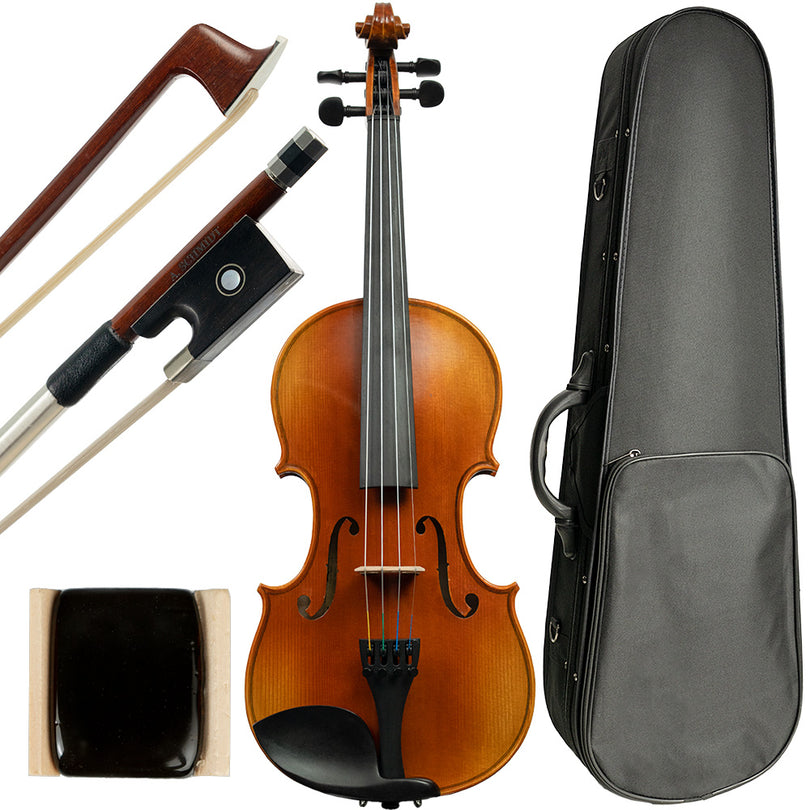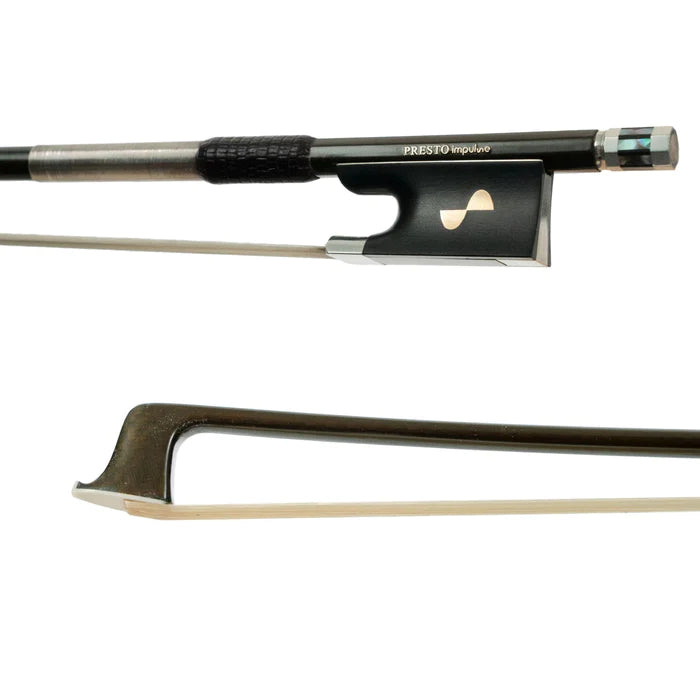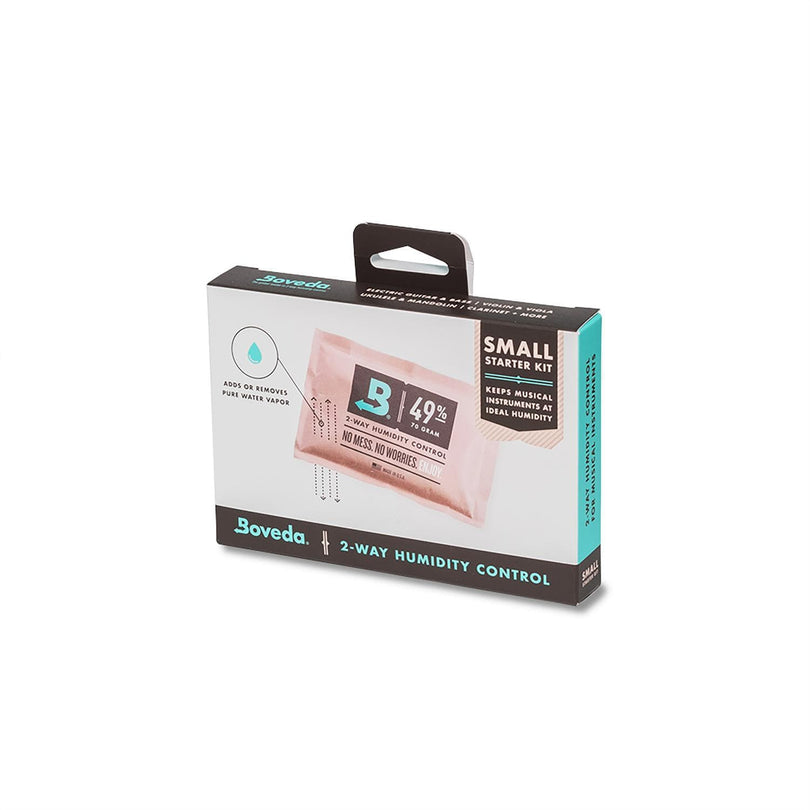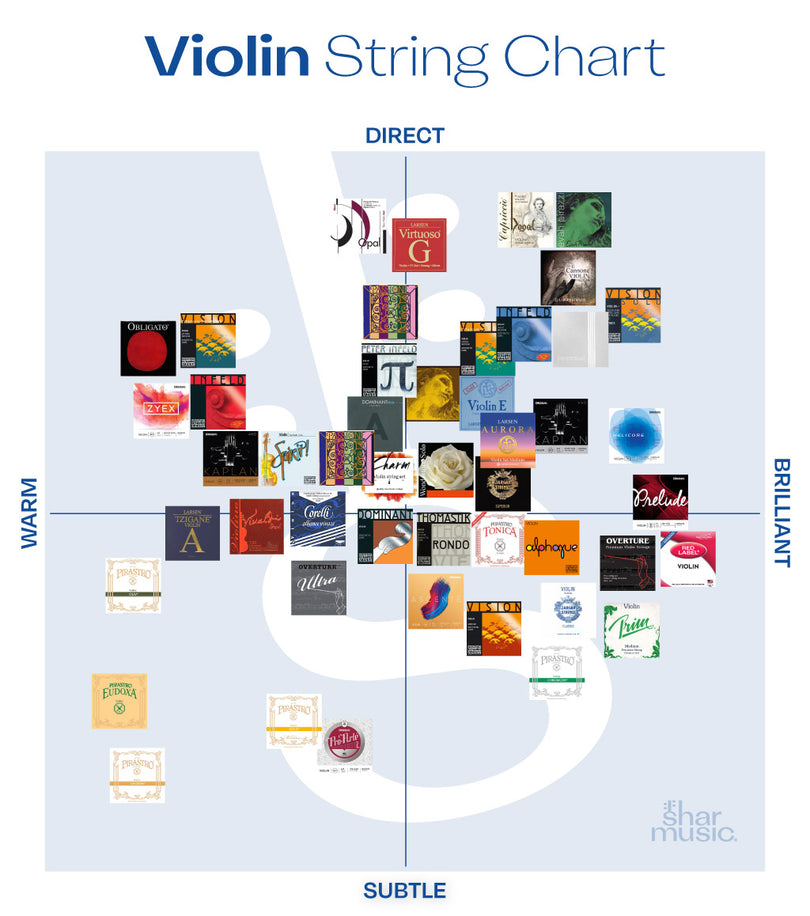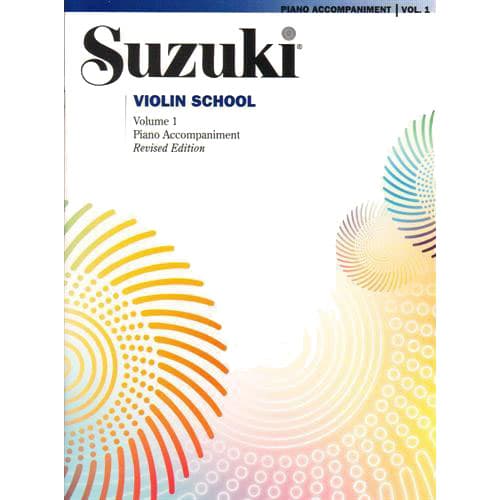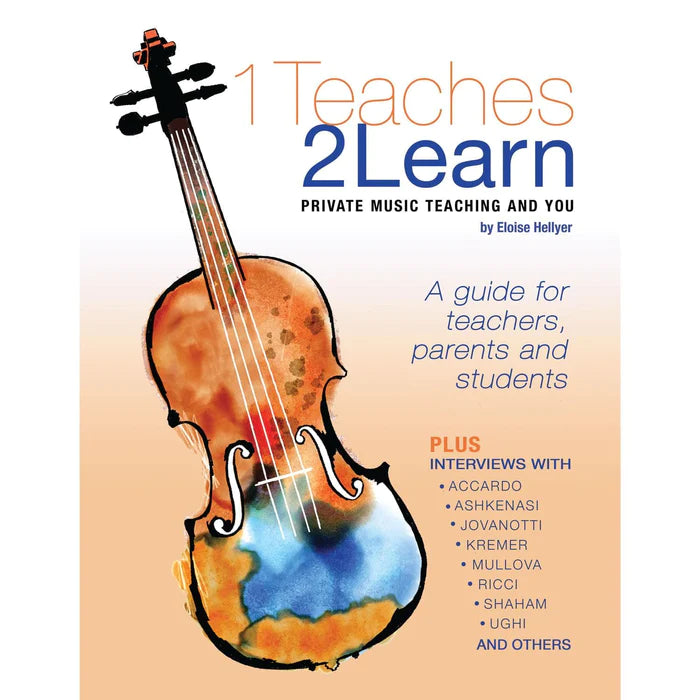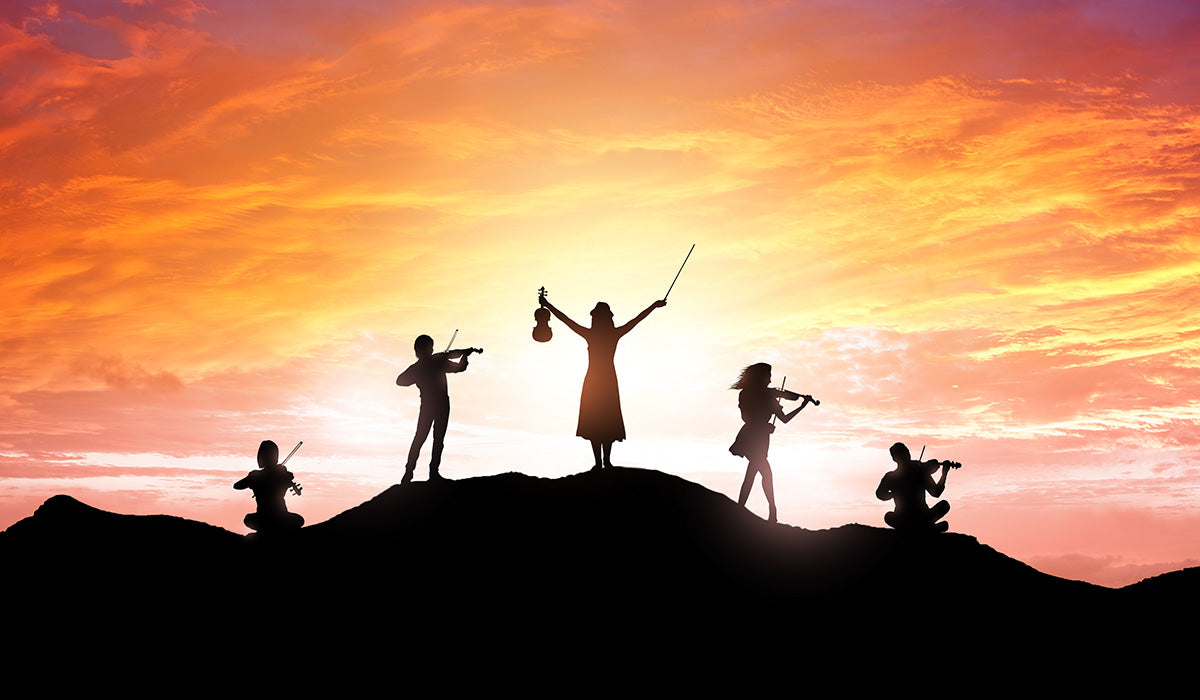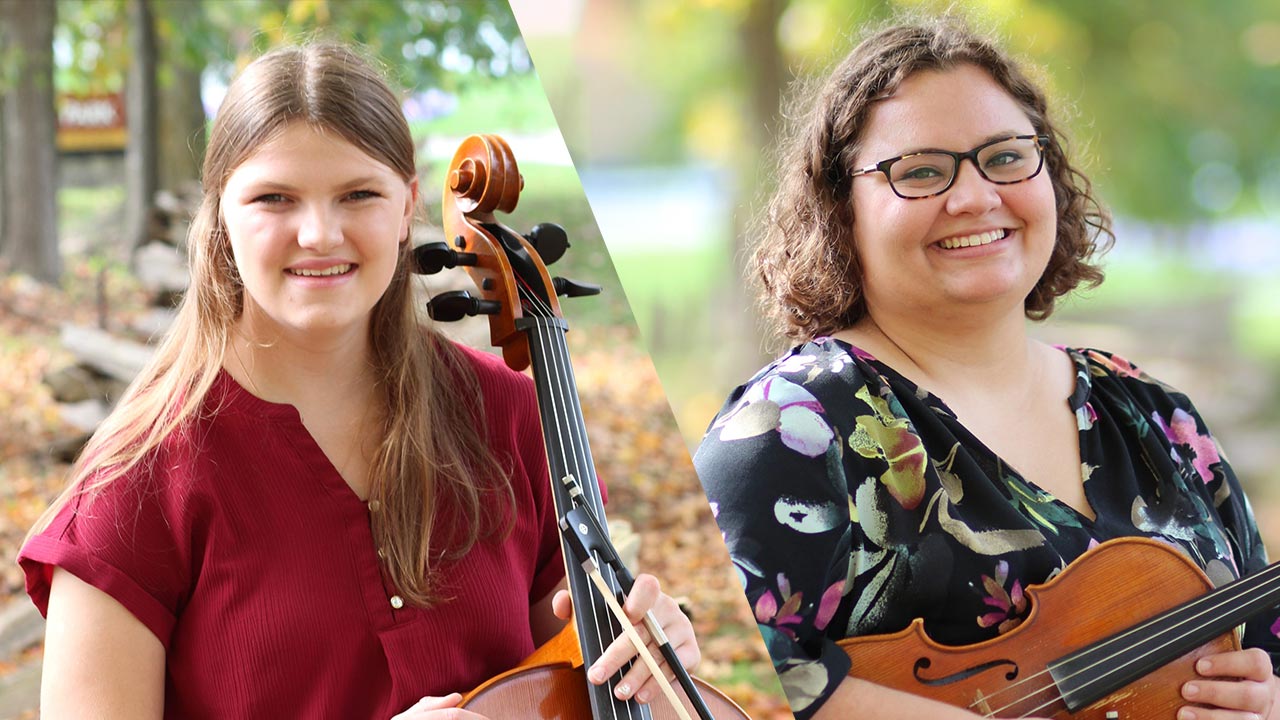Kiana June Weber is an Irish-American violinist, teacher, and performer. A graduate of the University of Michigan School of Music, she has toured with world-famous ensembles Barrage and Gaelic Storm, as well as recorded four number-one Billboard World Music albums. Most recently, she has returned from performing as the live fiddler for the Tony Award-winning musical, Come From Away.
Shar Music’s own Shruthi Kattumenu sat down for an in-person interview with Kiana to pick her brain about what it’s like to tour, her history with Shar Music® as a member of Young Strings of America, and how she sees opportunities in string music growing and changing in the future.
Below, edited for length and clarity, is their conversation; you can also watch the full video to get the complete Unvarnished Interview!
Shruthi Kattumenu: We have introduced you, but is there anything you’d like to add, places you’d like to fill the holes in your bio?
Kiana June Weber: I feel like one of the things that doesn’t crop up a lot in my bios as much is that I grew up in this area, just outside of Ann Arbor. So Shar Music® has been a huge part of my life since I was a kid. I was always looking forward to going in to look at that nice violin (laughs). It’s been really beautiful to watch that relationship blossom over time and see how much the company has grown. I think not only the support of Shar Music® but also the string culture around here is very cool, and hard to even describe to people who aren’t from southern Michigan. But there is so much music happening around here and so many avant garde string programs around here that really shaped the way I think about music.
SK: You have such a unique career as both a touring musician and a teacher. What is like in terms of balancing both sides?
KJW: I think that’s been a real challenge for me. Partially because they’re both such passions … I’m really trying to nail down the balance. I think in a really strange way, the pandemic forced us all online, and I think that’s actually been really great for music education. We can do a lot more music education now than we think we can—so that’s helped me keep that consistency because I can be on tour and also have a teaching schedule. I almost feel like I’m bringing my students and my Fiddle Club with me around the world.
SK: Your Online Fiddle Club is sort of your big project. How do you bring that collaborative fiddle culture to everyone in every time zone?
KJW: That’s been an interesting challenge. I’m used to hopping time zones with touring, so I am very aware of different time zones, and also the different languages we use when we’re learning. The way Fiddle Club is structured is largely to go at your own pace, so there is an asynchronous element, which works really well for a lot of time zones. It’s almost like Netflix for violin (laughs). You log in, you have a huge amount of tutorials, and lessons to play along with. All of those are work at your own pace and built on your own needs. I’d want people to do something that works for their own skill level. We do also schedule live group class sessions, usually on the weekends!
SK: You have such a multifaceted career, and we were wondering how do you balance your personal life, career, social media, health and wellness? All of the above?
KJW: That’s a really hard thing for artists. All of us, really. I think we’re struggling with how social media fits into our daily lives. And I do think that it is very important to have some separation. You have to look at what’s happening online as a tool you can use. There is a lot of personal branding garbage (for lack of a better term) out there, and that’s not real life. The further we can separate those things, the better … I don’t hide things personally, but mentally separating the online world from your value as a player or value as a human is so important, for all of us.
SK: Your musical career has been so varied, from schooling in classical music but touring with groups that do Celtic music. How were you able to craft that signature style and sound you have now?
KJW: It’s still in flux! I’ve struggled with this a lot because when I was growing up those two things were separate things … I was so confused as to who I was as a musician. Only within the last three or four years I feel like I’ve stepped into embracing [classical music and fiddle music] as one whole thing, and that is who I am. They can all exist together. It’s a spectrum of sound and experiences. There can be a whole library of techniques, not just one way to do something.
SK: What advice would you have for a young person trying to find a niche for themselves?
KJW: I think a lot of students are classically trained but want to learn other styles, and we go through learning specific techniques from each genre. "This is the sound I'm liking right now—what's the recipe to get that?" ... I think you need to branch out and figure out ways you can make different sounds. Orchestras are changing, our ears are changing ... I tell my students if you're cooking, you have a rack of spices you can use for things and we're just adding new spices to that shelf. You can still keep all of your classical flavors, but maybe we also want to add in a little bit of chilipepper every now and then (laughs). Just go for it!
SK: Do you think Celtic music is going to be popular forever? What do you think your role is in educating your audience?
KJW: I think Celtic and folk music in general is having a moment. Culturally, we've seen folk have a beautiful resurgence with pop music. I do think Celtic music is at the core of what we think is modern music. When we trace music back to medieval times, we were playing in pentatonic scales; we were playing folk music. Recent research ties medieval music to fiddle tunes ... Celtic music is at the core of that and preserved in the tradition. I think modern pop and folk music relates back to that. In my show I do a fiddle song that starts with a old fiddle tune and then suddenly we're playing a rock solo, and then we're playing a death metal solo. And it's great to see the audience react to that.
Kiana June Weber's Shar Music® Favorites
Evah Pirazzi Strings. "The green lady! Evah. My favorite."
Thomastik-Infeld PI. "I think they're gorgeous. I use them for recording."
D'Addario Viva & Amo Strings. "Great for live, onstage live performances. Especially outside. They instantly hold pitch. They are pretty indestructible and don't sacrifice that nice round tone."
Kun Collapsible Shoulder Rest. "They travel really well! I have one short foot and one long foot installed and it works perfect."
Coda Marquise Bow. "I'm such a Coda fanatic. I think they're great on stage--it was the bow of choice for the Broadway show I was in. It's indestructible and I think it's also beautiful. It has a classical bounce to it."
Coda Diamond Bow. "A little heavier. Great for nice, digging fiddle sounds. I use them for a lot of Celtic fiddling and Spanish Tango."
Shar Music Microfiber Cloth & Shar Music® Tuner. "A great microfiber cloth. I've been using them for years. And the display of the Shar Music® tuners are larger and clip over the peg box. It's so easy to use."
Find Kiana on Socials!

